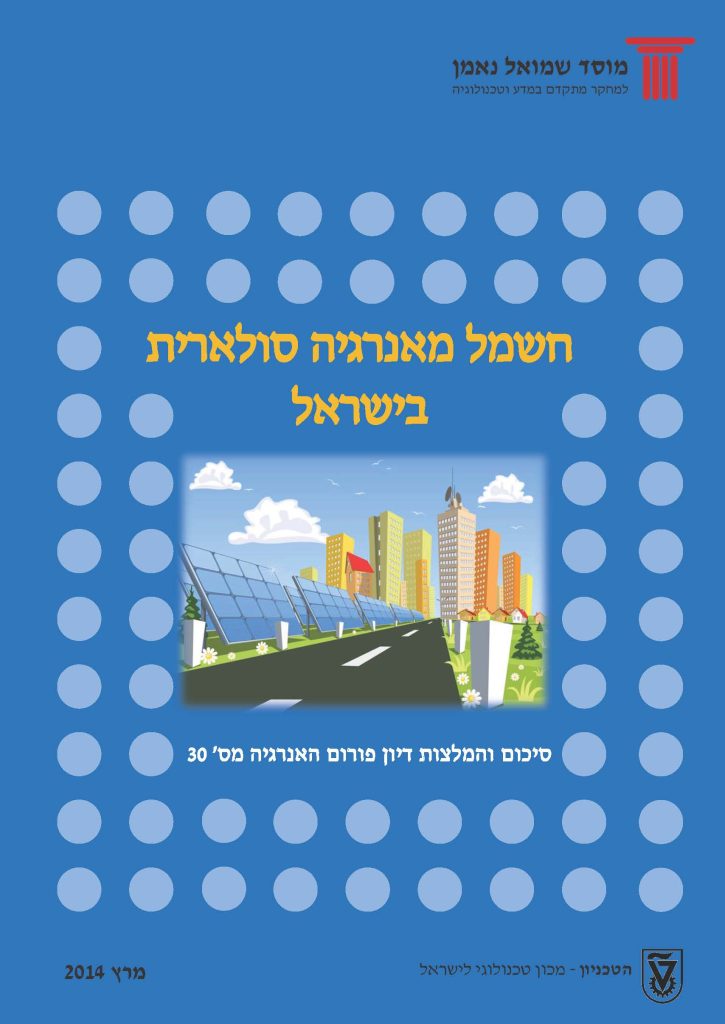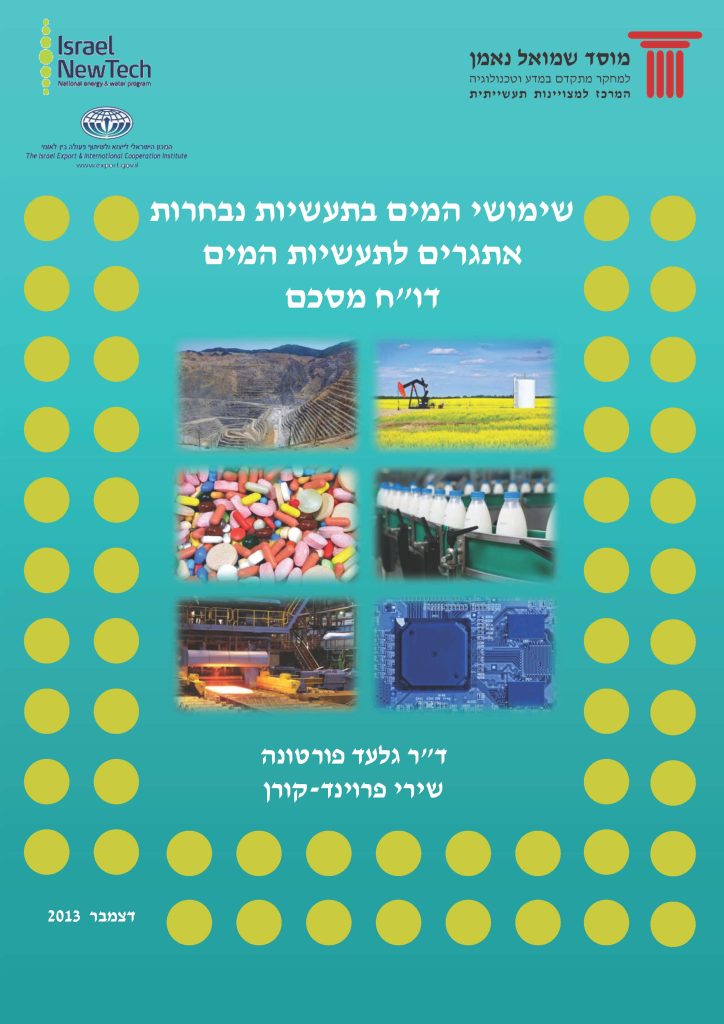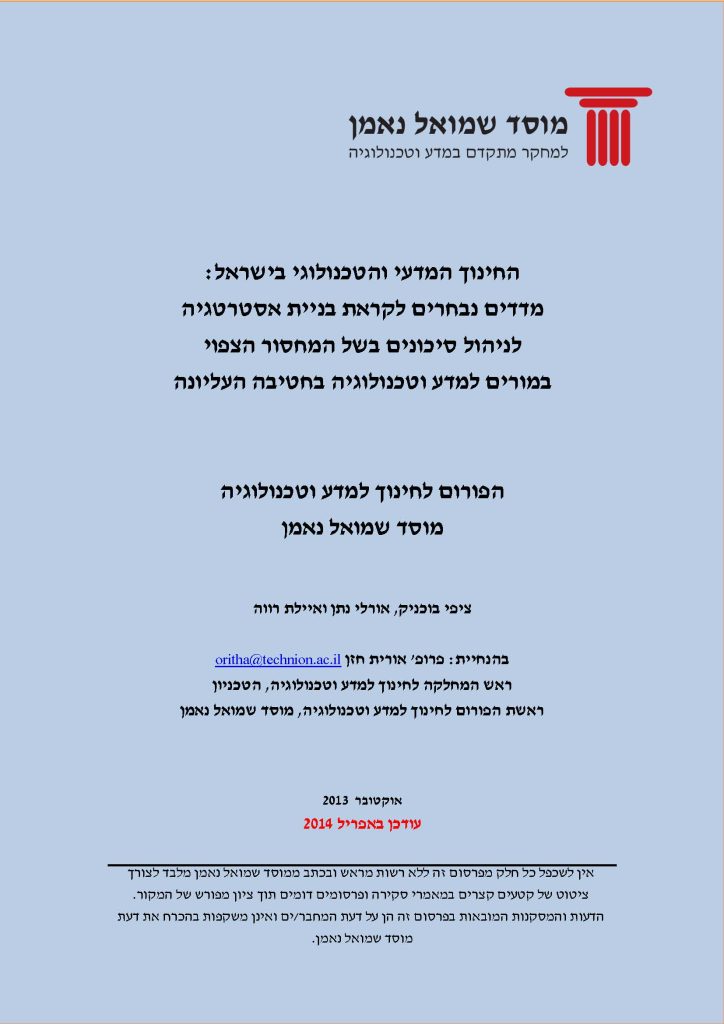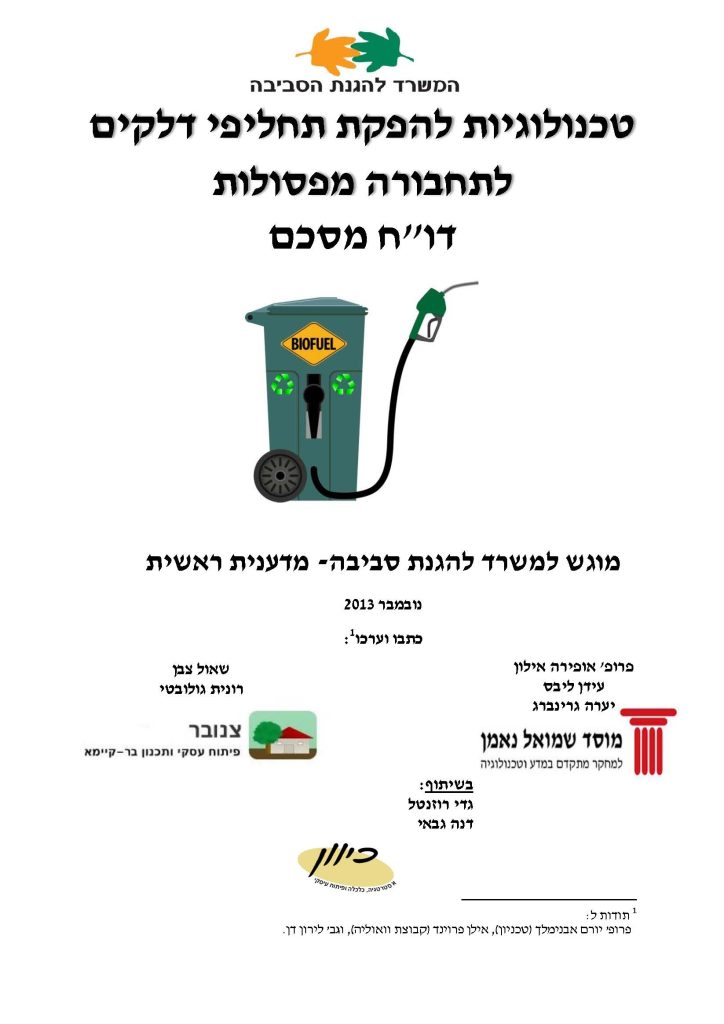Energy Forum 30: Solar Energy to Electricity in Israel

In 2009 the government of Israel set a target of 10% of electricity to be generated from renewable sources by 2020. Under this framework, the government policies supporting construction of renewable electricity power plants are enacted through issuing of tenders and authorizing the Public Utility Authority – Electricity to set feed-in tariffs. In light of […]
Survey and Database on Israel’s Scientific foreign Relations on a national and institutional level

Israel’s scientific and technological foreign relations are multiple and diverse. The list of Israeli bodies which have bilateral or multilateral agreements with foreign entities on scientific and technological topics includes universities, colleges, the National Academy of Sciences, government agencies, institutions and public authorities, research institutes and more. The Samuel Neaman Institute won a tender issued […]
Integration of electric and hybrid vehicles in Israel’s transportation system – Phase B: economic analysis and life cycle assessment
This document holds the second phase of the paper, and provides an initial economic analysis and life cycle assessment (LCA) of utilizing these technologies and solutions in Israel. Under the base scenario it is concluded that ICE vehicles (the conventional alternative) have the lowest total cost of ownership (TCO) per kilometer-driven (sans taxes); accounting for […]
Integration of waste-derived alternative fuels in Israel’s transportation system – Phase B: economic analysis and life cycle assessment
This objective of this paper is to provide an initial economic analysis for the production of transportation fuels by anaerobic digestion of biomass and gasification of general waste (including synthetic waste materials). Based on phase A of this study, the analysis details the maximum amount of alternative fuels which could be produced from waste in […]
The Development of the Israeli Research Universities

The Israeli research universities were influenced by some major academic cultures. Over the years, the universities played a central role in the economical social and cultural development of Israel. In this study, major developments events and processes over the last decades are described. During these years, the universities gained high academic reputation and contributed significantly […]
Research Standing of Israeli Universities by Quantitative Indicators

This study deals with evaluation of the research standing, of Israeli Universities, by quantitative indicators. Data of publications and citation indices, as well as the results of International University ratings, are presented. The results show the relative output and quality of research, in various areas, in Israel and at the Universities.
The IDF Conscription Model: Alternatives and novelties. Summary of a Round Table in Ben-Gurion’s Spirit.

This report includes the proceedings of the ‘Round Table’ conducted at Samuel Neaman Institute on March 19, 2014. It is the first stage in a project entitled The IDF Conscription Model‘ initiated at SNI earlier this year. In addition, the report includes the invitation to the Round Table, comprising the rational and explanation to this […]
Water uses in chosen industries – challenges for the water industry

This document is the final report for the project “Global Challenges for the Israeli’s water industry”. The report describes the methodology of the project, summarizes the findings of work in the various sectors and presents the main challenges in sectors surveyed. The report also presents the list of companies that have been mapped so far […]
Science & Technology Education in Israel: Selected Indicators for the Development of a Risk Management Strategy regarding Possible Future Shortages of S&T Teachers in Upper-Secondary Schools

The Forum for Science and Technology Education has been launched in 2013 in order to establish and encourage cooperation among different sectors in Israel to promote K-12 science, technology, engineering and mathematics (STEM) education. The importance attributed to STEM education and the need to increase the number of high-school students who choose to study STEM […]
Technologies for the production of transportation fuel substitutes from waste – Summary Report

This work was carried out within the framework of a 2011 Government decision regarding the operation of a national program to reduce global dependence on oil, and a 2013 Government decision regarding reduction of Israel’s dependence on oil for transportation. The study analyses the current available technologies for using waste as a source for alternative […]
